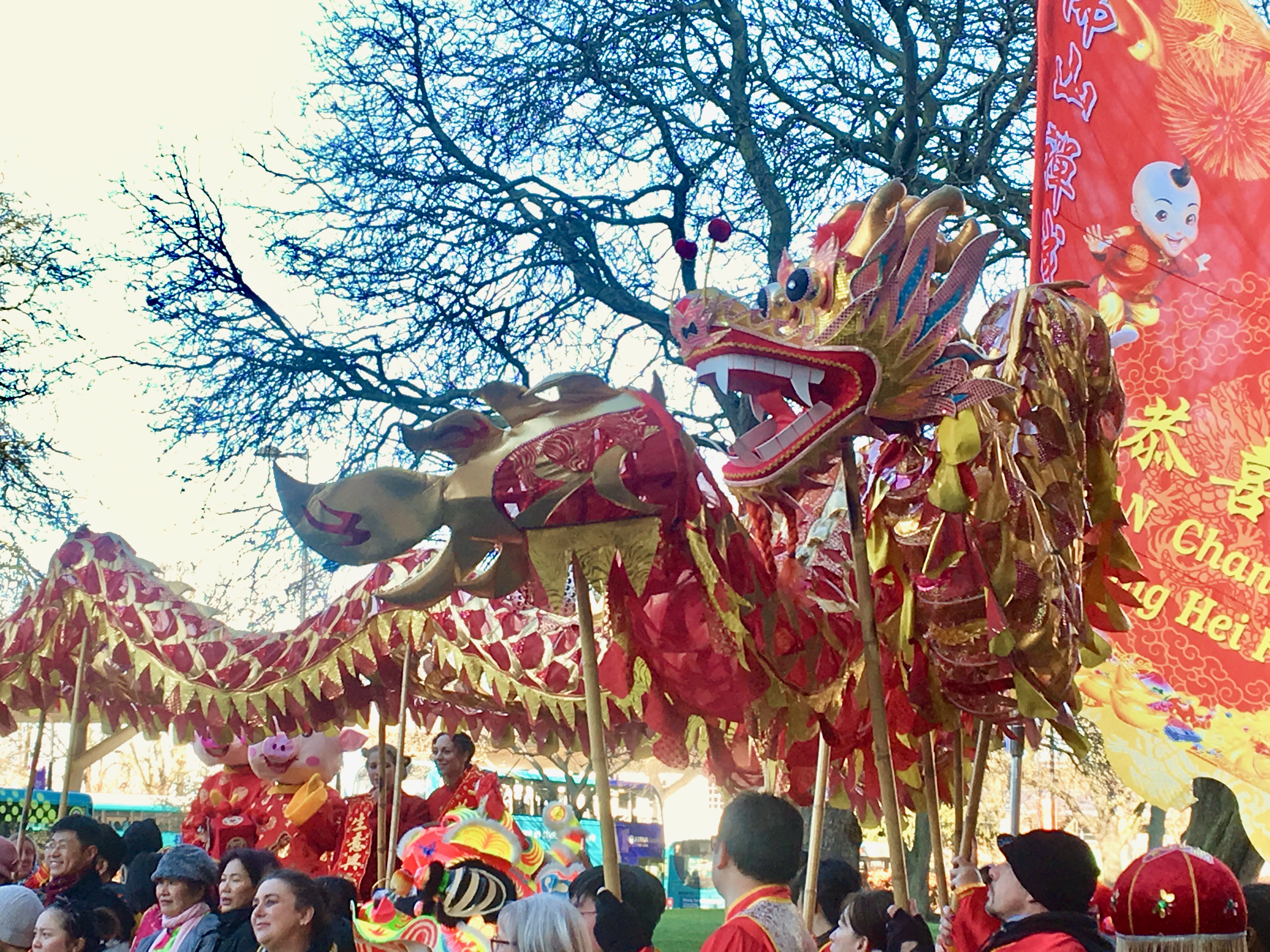Can Chinese youth keep New Year traditions alive?
By Isabel Mueller Eidhamar
Most of us celebrated the New Year more than a month ago, but for England’s Chinese community the party is just getting started.
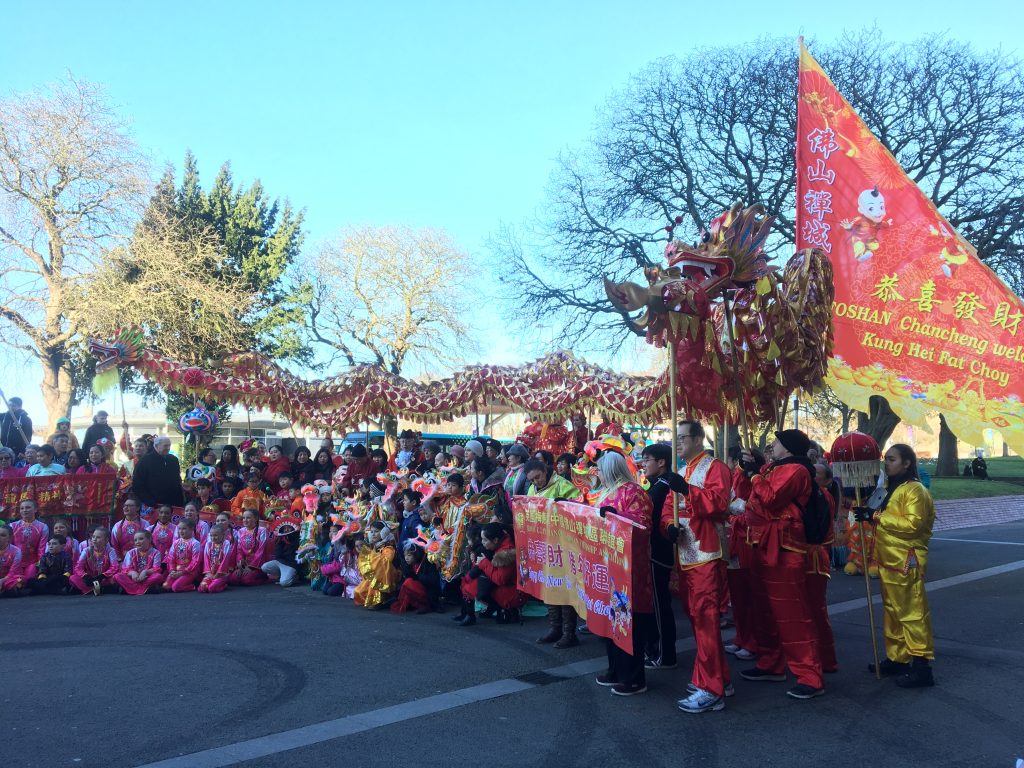
From the Chinese New Year celebrations in Chatham. Photo: Isabel Mueller Eidhamar
Chinese New Year, which officially began earlier this week, sees dozens of parades, colourful dragon dancers and thousands of people taking to the streets to celebrate the new Lunar Year, the Year of the Pig.
However, with more and more young Chinese people feeling disconnected from their roots, the traditional festivities might dramatically change.
Chi-Nim Yau, member of the Medway Kut-O Dragon and Lion Dance Sports Association, is one of the few remaining dragon- and lion dancers in Kent, and he is worried that if the younger generation doesn’t soon take an interest, the popular traditional ritual to bring in the New Year, could soon be at risk of dying out.
“It is important to carry it on, otherwise I don’t know how long this tradition will last,” he says, adding that they hope a cooperation with Chinese schools, could help inspire more youngsters into the sport.
“The dragon includes nine people, and there’s an average age of 40- or 50-years-old,” he continues, “We need to pass it on to the new generation.”
Chi-Nim and the rest of Medway’s Kut-O Dragon- and Lion-dance team will be performing this weekend at the Chinese New Year festival in London, deemed to be the largest of its kind outside of Asia. Last year the parade gathered more than 200,000 visitors, but not everyone are interested in attending.
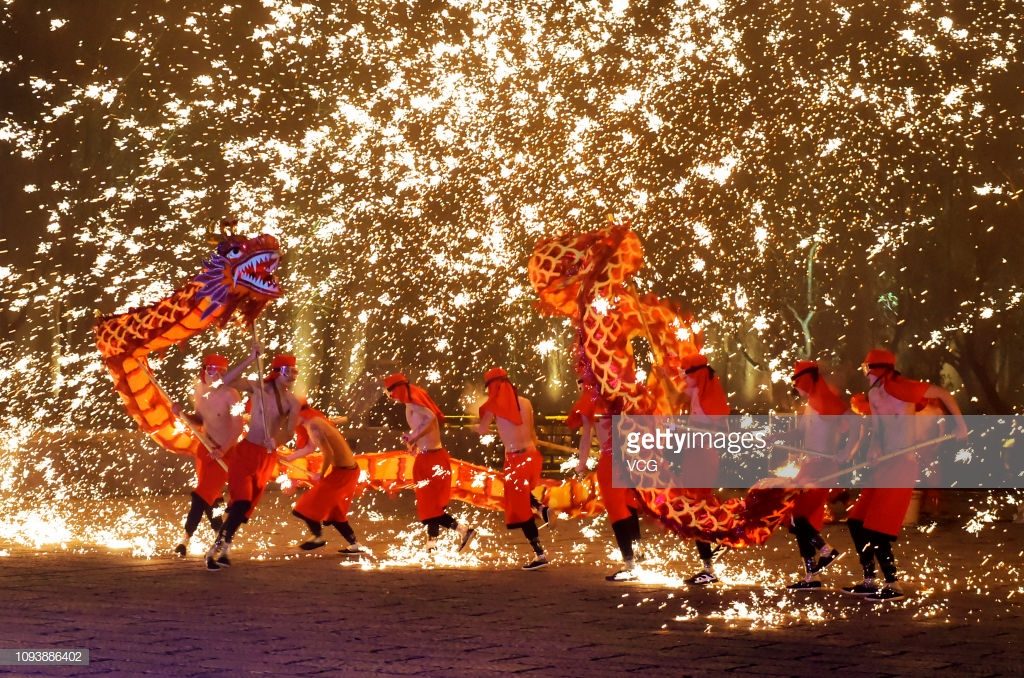
Traditional Chinese Dragon-dancing in the Shadong Province in China.
Today an estimate of 430,000 ethnic Chinese people live in the UK. Sally Poon, 20, from Hong Kong is one of them. She has lived in the UK for three years, and today she no longer feels the need to follow all the rituals and rites she grew up with in China.
“Being away from home for three years I don’t really care about the traditional festival,” she says.
This year Sally is having a small gathering with friends to mark the beginning of the Lunar Year.
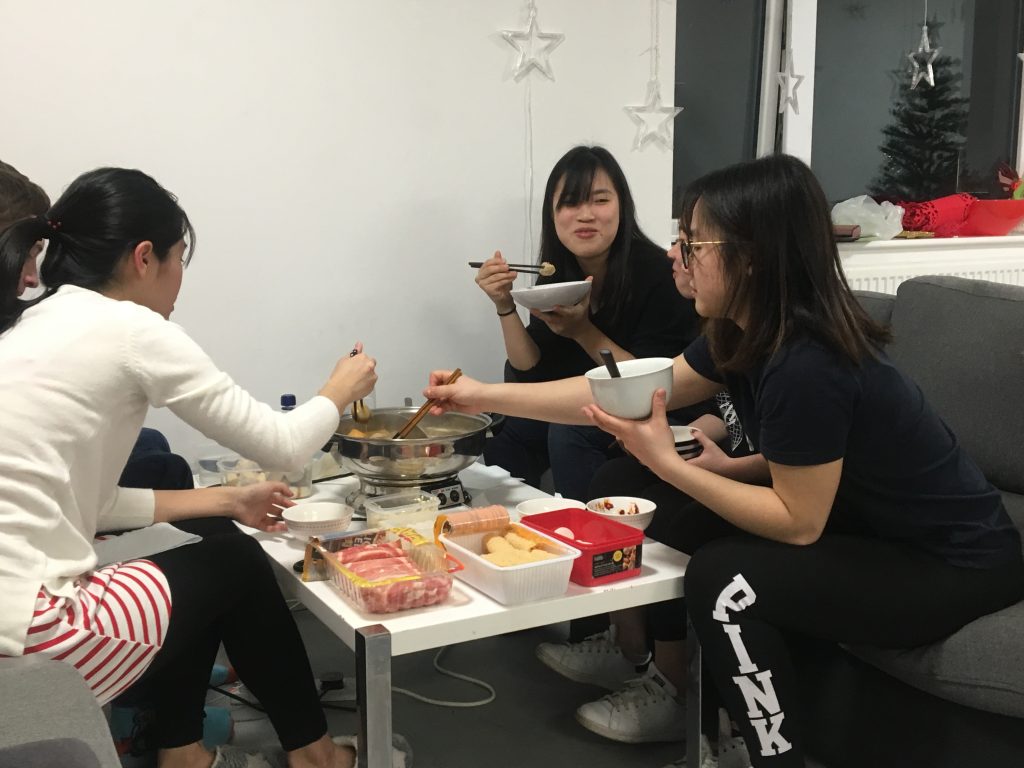
Sally Poon eating traditional ‘Hot Pot’ to celebrate the New Year.
“Festivals is just an excuse for gathering everyone,” she continues, “It’s not really important”.
The number of people like Sally, who no longer feel connected to their heritage, is rapidly growing. Last year the parade in Chatham was cancelled, and only few years prior to that, there was no parade at all, only a small gathering between the people in the Medway China Association.
However, Chatham’s parade on Sunday February 3rd showed a completely different picture smiling children wearing lion masks and a vast number of traditional performances in both Taj Chi, dance, music and Dragon-dancing.
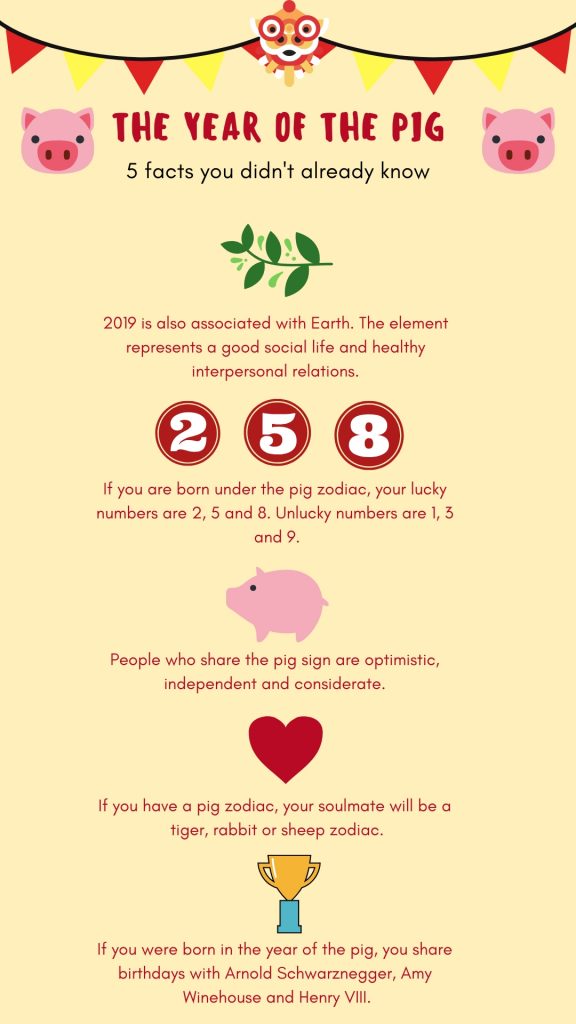
Business student and Hong Kong expat, Amanda Chung, thinks the key to ensuring the festival remains alive is to include everyone in the celebrations.
“Chinese people always stick together,” she says, “But we need to share our culture more with others. That would be the best thing. It is important to not only stay with your own group.”
For now, the Chinese New Year festivals around the world remain a highlight for many, and with time we will see if Chinese youth can keep their heritage alive while living abroad.

